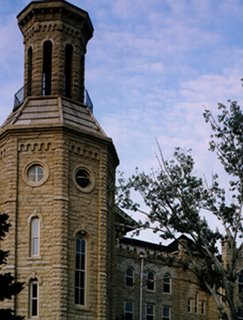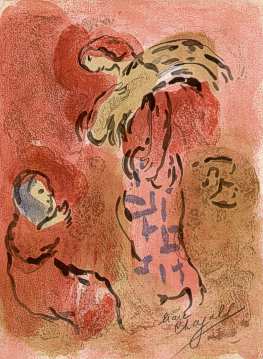
Okay, you’ll have to forgive me. The new
U2 DVD has just come out and I’m a bit giddy. It was filmed at the United Center in Chicago back in May. We had tickets to the show, but ended up having to sell them to a friend so that we could make a trip back to Texas. Thankfully, we got tickets to the show on their second trip through Chicago back in September.
In one sense of the term, Bono has made a career out of being a prophet. One of the hallmarks of the biblical prophet was his insistence on speaking truth to power, even when that truth was not particularly flattering or popular. Bono has used his platform as one of the most popular musical performers in the world to speak out about injustices in his native Ireland, in the United States, in Latin America, and perhaps most famously in his advocacy on behalf of the continent of Africa. A recent
New York Times article noted that “Bono's willingness to invest his fame, and to do so with a steady sense of purpose and a tolerance for detail… has made him the most politically effective figure in the recent history of popular culture.” In large measure, it’s the “prophetic voice” in U2’s music, performances, and off-stage political advocacy that has made them who they are and distinguished them from so many other bands that have come and gone over the course of their 25 year career.
But another sense of the term “prophet” – the more popular use of the term – refers to an ability to “see into the future.” Now I’m not sure that I’m ready to suggest that Bono has some divinely given gift of clairvoyance (those of us who aren't charismatics have all sorts of ways of explaining why this isn't happening much anymore), but I was struck when listening to “Where the Streets Have No Name” on the new DVD. In introducing the song Bono says “from the bridge at Selma on the Mississippi [site of the American
“Bloody Sunday” in 1965, though not actually on the Mississippi], to the mouth of the River Nile, from the swamp lands of Louisiana, to the high peaks of Kilimanjaro, from Dr. King’s America to Nelson Mandela’s Africa, the journey for equality marches on.” Then when singing the song he changed the line about taking shelter from the “poison rain” to taking shelter from “the hurricane.” Now, the reference to the swamp lands of Louisiana and to taking shelter from the hurricane would not have been at all surprising had the concert been filmed after all that we witnessed in the aftermath of Hurricane Katrina, but the film was shot three months before. I was struck by how the words he said then have even more meaning now. Hopefully the journey for equality will indeed continue to march on, both in the swamp lands of Louisiana and the heights of Kilimanjaro. Katrina made it clear that Dr. King's dream is still waiting to be fulfilled, not only in Africa but here in America too.
For all you other U2 geeks out there, there has been a spate of recent reflections from Christian writers on U2’s spiritual journey and message: Steve Stockman’s
Walk On: The Spiritual Journey of U2, a collection of sermons reflecting on the intersection of Scripture and U2 songs called
Get Up Off Your Knees: Preaching the U2 Catalog, a more theological piece by Robert Vagocs called
Religious Nuts, Political Fanatics: U2 in Theological Perspective, and a forthcoming book from Brazos Press (which means its bound to be good) called
One Step Closer: Why U2 Matters to Those Seeking God. Also of interest is the recent ‘autobiography-of-sorts’ called
Bono: in Conversation with Michka Assayas, a fascinating excerpt of which is available from
ChristianityToday.com.
 I know that at least a couple of the folks that check this blog occasionally dig Toad the Wet Sprocket as much as I do, so at least they’ll find this of interest. The rest of you should keep reading and check out some of the links… you might find something you like.
I know that at least a couple of the folks that check this blog occasionally dig Toad the Wet Sprocket as much as I do, so at least they’ll find this of interest. The rest of you should keep reading and check out some of the links… you might find something you like.


